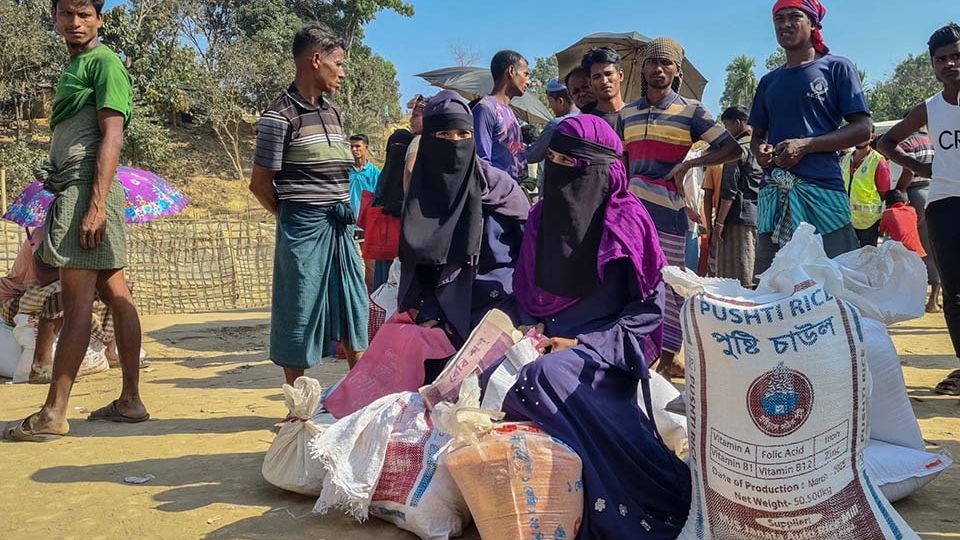October 31, 2025
DHAKA – A new report on food security in Bangladesh offers a lesson that managing a crisis is not the same as solving it. While the number of people facing high levels of acute food insecurity has dropped from 2.35 crore in 2024 to 1.6 crore this year, the figure is still an indictment of a system that continues to fail the most vulnerable. Among them are 3.61 lakh people who are in “emergency” conditions, a technical term that belies the brutal reality of empty stomachs and fading hope. This is a crisis unfolding in slow motion.
The report, prepared by the Bangladesh government in concert with United Nations agencies and humanitarian partners, is commendable for its clarity and rigour and leaves little room for ambiguity. The epicentre of this food insecurity crisis is Cox’s Bazar, where the confluence of two vulnerable populations—Rohingya refugees and their host communities—creates a perfect storm of need.
The drivers of food insecurity are depressingly familiar. Climate shocks, such as the widespread flooding in 2024, have devastated agrarian livelihoods, washing away crops as well as the means of recovery. Economic shocks, in the form of persistent inflation and market volatility, have also eroded the purchasing power of the marginalised. Perhaps most damning of all is the man-made crisis of neglect. As needs intensify, the international community is reducing the humanitarian funding that is a literal lifeline for hundreds of thousands. This is a failure of the international community’s resolve. The world rallied with promises when the Rohingya fled genocide; it is now quietly reneging on those promises, leaving Bangladesh to shoulder a burden that is rightfully the world’s.
Compounding the food crisis is a parallel nutrition emergency that threatens a generation. The projection that 16 lakh children under five will suffer from acute malnutrition this year should set off alarm bells. Malnutrition in early childhood causes irreversible physical and cognitive damage, crippling a nation’s future potential and locking children into a cycle of poverty before their lives have truly begun.
The Bangladesh government has rightly acknowledged the “sobering picture” and committed to action. But the government cannot do it alone. The report’s key recommendations—life-saving assistance, shock-responsive safety nets, agricultural support—are a clear roadmap. The government’s political will must be met with a sustained financial and technical commitment from the international community.
Bangladesh’s progress in food security, however hard-won, is fragile. The reduction in food insecurity from 2024 shows what coordinated effort can achieve. But allowing donor fatigue or global indifference to undermine this momentum would be a moral and strategic failure. Millions of people facing severe hunger are the final test of our conscience. They reflect a grim reality that can no longer be ignored.


